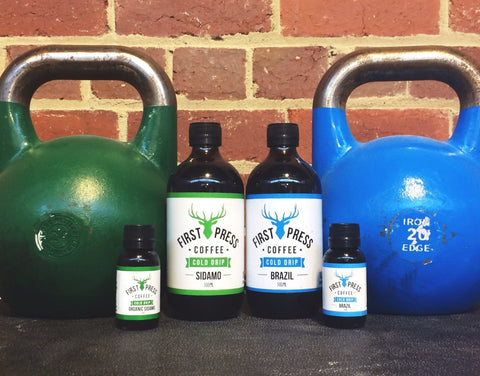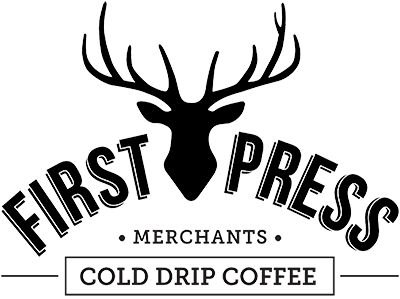While the morning coffee has become a productivity ritual for workers the world over, less attention is often paid to the incredible physical effects coffee and natural caffeine can have on our bodies. With Summer approaching and drive to get in shape increases, we thought it was time to delve into the science of this miraculous bean and the benefits it can have as part of an active lifestyle!
Coffee helps you burn fat
Research has shown that one coffee can help us increase our resting metabolic rate by 3-4%. Consumed regularly over a 12 hour period, it can also create an increase in energy expenditure of 8-11%. Wonder why your feeling so awake? The body is drawing more energy and increasing your metabolism so you can get stuff done!
Coffee increases your physical performance
If your ready to hit the gym, the caffeine from coffee can release fatty acids from your fat tissues to be used as fuel during your workout. As these acids are released, adrenaline is also released helping you have gains of 11-12% in physical performance. If you’re looking for an even bigger boost on your big day, cut back on your caffeine intake for a few days beforehand to diminish your dependance and tolerance for caffeine.

Coffee increases your pain threshold
Caffeine consumed before a workout has been shown to significantly reduce your body’s pain threshold, making it the perfect additive to your next gruelling session. Having an increased pain threshold means that little voice in the back of your head telling you to stop comes a little bit later than normal, helping you reach peak performance at higher intensities for longer periods of time.
Coffee aids in muscle recovery
A study from the University of Illinois found that when consuming the equivalent of 2 cups of coffee before a workout, test subjects experienced a reduction in post-workout muscle soreness of up to 48%. This means you can work hard and bounce back the next day without looking like you need a walking frame.

Coffee helps us perform better in competitive sports
If you’re the competitive type, a caffeine kick can help you lift your mental game when playing competitive sports. Research shows that caffeine consumption improved players accuracy, mental performance and cognitive function on the soccer field. Not only can caffeine lift your performance physically, it can also make you smarter on the field.
Tips to using coffee to achieve peak performance
If you’re looking to really push your competitive advantage with caffeine, there are a few extra steps you can take to get the most out of your coffee.
First off, avoid adding sugar. Research shows that consuming high amounts of carbohydrates with coffee can inhibit the stimulatory effects of caffeine. Reducing the amount of milk you have with your coffee can also help to speed up the digestion of caffeine while also reducing its calories.
As well as cutting the additives, the method of extraction can also help you move the needle on your performance. With less acidity than regular coffee and a taste that requires no milk, sugar or additives, cold drip coffee allows you to enjoy the smoother taste of coffee without all of the performance inhibiting additives. The body loves simplicity!
An active lifestyle is an essential part of a healthy life. Kick your summer body into gear early with the pure natural energy of caffeine and its incredible performance enhancing properties!
Want to learn more?
Here's a bunch of extra reference material so you can delve further into the science:
Dulloo, A. G et al. Normal caffeine consumption: influence on thermogenesis and daily energy expenditure in lean and postobese human volunteers. American Journal of Clinical Nutrition. 1989 January; 49 (1) 44-50.
Doherty, M., Smith, P. M. Effects of caffeine ingestion on rating of perceived exertion during and after exercise: a meta-analysis. Scandinavian Journal of Medicine & Science in Sports. 2005 April; 15 (2) 69-78.
Gliottoni, R. C. & Motl, R.W. Effect of Caffeine on Leg-Muscle Pain During Intense Cycling Exercise: Possible Role of Anxiety Sensitivity. International Journal of Sport Nutrition and Exercise Metabolism, 2008 (18) 103-115.
Foskett, A., Ali, A., Gant, N. Caffeine enhances cognitive function and skill performance during simulated soccer activity. International Journal of Sport Nutrition and Exercise Metabolism. 2009 August; 19(4) 410-23.
O’Conner, P.J., Dudley, G.A., McKully, K. K. Caffeine Attenuates Delayed-Onset Muscle Pain and Force Loss Following Eccentric Exercise. The Journal of Pain. 2007 March; 8(3) 237-243.
Skinner, T. L et al. Influence of carbohydrate on serum caffeine concentrations following caffeine ingestion. Journal of Science and Medicine in Sport. 2013 July;16(4):343-7.
